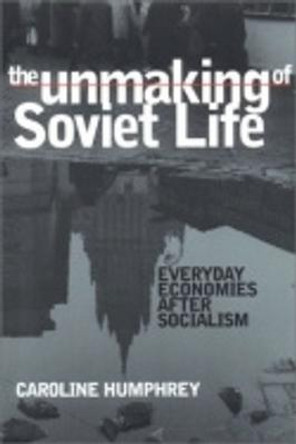Description
About the Author
Nicolette Makovicky is Lecturer of Russian and East European Studies at the University of Oxford. She is the editor of Neoliberalism, Personhood, Postsocialism: Enterprising Selves in Changing Economies (Ashgate, 2014) and has published extensively on informal economic activity in Central Europe. David Henig is Lecturer in Social Anthropology at the School of Anthropology and Conservation, University of Kent. His research, conducted mainly in the Balkans and Central Asia, focuses largely on vernacular Islam, sacred landscape, exchange theory, and more recently on linking anthropology with global transnational history, diplomacy, international relations, and geopolitics. He has authored numerous publications on Islam, dervish orders, Muslim politics, and post-socialism.
Reviews
,,,innovative and inspiring * Matias Dewey, Max Planck Institute for the Study of Societies, the european electronic newsletter *
Assembling a stellar collection of authors to address an exceptionally well formed and originalset of questions, this book achieves for favours what Humphrey and Hugh-JonesAcs seminal Barter, Exchange, and Value did for barter: the creation of a sophisticated new category for comparative analysis. It also brings the anthropology of ethics into conversation with economic anthropology in a highly creative way, greatly to the benefit of both: a work of real importance. * James Laidlaw, William Wyse Professor of Social Anthropology, University of Cambridge *
This collection offers a timely and compelling inquiry into favors as the Acpower of the exceptionAc illustrating the rule.Ethnographic accounts of how people strive to live the good life, understood in moral and material terms, take us beyond the familiar condemnatory analyses of corruption and patronage to offer new perspectives on exchange, debt, gifts, reciprocity and the social relations that sustain them. * Catherine Wanner, Professor of History, Anthropology, and Religious Studies, Pennsylvania State University *
This book is not just for scholars of Eurasian post-socialisms. The contributors show convincingly that the centrality of favours to so many dimensions of social, cultural, economic, and political life in this part of the world is fertile ground for advancing broader analytical frameworksAcof morality and ethics, of economy and society, of the semiotics of social life, and a great deal more. Favours have finally earned their own distinct place in social and cultural anthropology. * Douglas Rogers, Associate Professor of Anthropology, Yale University *
In the popular imagination, favours are easily taken as the ultimate proof of the ideological and utilitarian failure of socialism. But the contributions to this volume show that favours are important to all economic formations, including the many invocations of capitalism in contemporary Post-Socialist countries.The ethnographies of favours offer intimate accounts of how new forms of inequality emerge and some old ones continue, of everyday struggles for respectability in volatile situations, and reveal how people navigate complex and contradictory moral demands. This volume illustrates how important it is to take people's own classifications of economic practices serious and that such classifications Acin this case, favours- are fundamental to the advancement of economic theory. * Erik BAhre, Associate Professor of Anthropology, University of Leiden *
Casting a bright, new light on favours in the economy, the authors show that favours are embedded in moral and ethical ideals even when they subvert authorized practices.Neither purely instrumental nor mutual acts, neither reciprocity nor contract, favours are anomalous practices in formal economics just as they can be ambiguously interpreted in everyday life. The essays display how productive this ambiguity can be for a flourishing material existence. * Stephen Gudeman, Professor of Anthropology, University of Minnesota *
Book Information
ISBN 9780199687411
Author David Henig
Format Hardback
Page Count 254
Imprint Oxford University Press
Publisher Oxford University Press
Weight(grams) 510g
Dimensions(mm) 240mm * 166mm * 19mm





